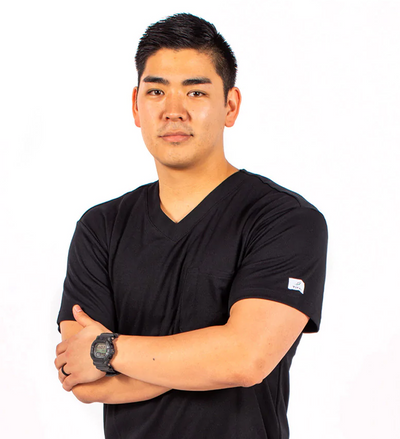Are surgical caps just another piece of attire or do they serve a greater purpose in the medical field? In this article, we delve into the world of surgical caps, exploring their role-specific types and their importance in healthcare settings. From decoding the colors to understanding the impact on patient care, we uncover the secrets behind the humble surgical cap.
Decoding the Colors: What Different Surgical Cap Hues Signify
Ever wondered what the various colors of surgical caps mean? These seemingly arbitrary hues actually hold significance in the medical world. In most hospitals, different colors are assigned to specific roles, helping medical professionals easily identify each other's expertise and responsibilities. Here is a breakdown of what each color signifies:
- Blue: often worn by surgeons
- Green: typically worn by surgical team members, including nurses and scrub technicians
- Pink: can be worn by doctors or other healthcare professionals who want to bring a touch of personality to the operating room
Moreover, the tradition of color-coded surgical caps dates back to the early 20th century when Dr. Ernest Codman, a pioneering surgeon, introduced the concept at Massachusetts General Hospital. Dr. Codman believed that assigning specific colors to different medical roles would enhance communication and teamwork in the operating room, ultimately leading to better patient outcomes. His innovative idea was quickly adopted by other hospitals across the country and has since become a standard practice in the field of surgery.
It is fascinating to note that the color blue, commonly associated with trust and professionalism, was chosen for surgeons due to the precision and expertise required in their role. On the other hand, the color green, symbolizing balance and harmony, was designated for surgical team members to represent the collaborative nature of their work. The introduction of pink caps brought a touch of individuality and warmth to an otherwise sterile environment, allowing healthcare professionals to express their unique personalities while maintaining professionalism. The white caps worn by pharmacists, anesthesiologists, and medical students symbolize purity and knowledge, reflecting the importance of accuracy and learning in their respective roles within the medical team.
A Look Into the Different Types of Surgical Caps
Surgical caps come in various styles, each designed to fulfill specific needs. Here are some common types:
- Disposable Caps: made from lightweight, breathable materials, these caps are commonly used in hospitals to ensure hygiene.
- Cloth Caps: often chosen for their reusability and comfort, cloth caps are favored by healthcare professionals who want a more personalized touch.
- Bouffant Caps: characterized by their fullness, bouffant caps are ideal for professionals with longer hair or those who wear head coverings for religious or cultural reasons.
Aside from the types mentioned above, there are other specialized surgical caps that cater to specific requirements in the medical field. For instance, scrub caps are designed with sweatbands to absorb moisture during long surgical procedures, ensuring the comfort of the wearer. These caps often come in vibrant colors and patterns, adding a touch of personality to the operating room environment.
Furthermore, surgical caps with adjustable ties or elastic bands are gaining popularity due to their versatility in accommodating various head sizes. This feature not only provides a secure fit but also allows for easy adjustments during extended wear, promoting convenience for healthcare professionals throughout their shifts.
How Surgical Caps Vary Based on Medical Specialties
Every medical specialty has its unique requirements, and surgical caps are no exception. Let's explore how surgical caps may vary based on the medical specialty:
In the operating room, surgeons require caps that offer excellent visibility, secure fit, and minimal interference with vision. On the other hand, surgical caps worn by anesthesiologists require additional features such as a snug fit to cover most of the wearer's hair.
Specialties like pediatrics, neonatology, and oncology often prefer colorful and vibrant caps to create a welcoming and less intimidating environment for their young patients.
Orthopedic surgeons, who often perform lengthy procedures requiring precision and focus, may opt for caps with built-in LED lights to enhance visibility in deep surgical sites. These caps not only illuminate the area but also eliminate shadows, aiding in accurate incisions and placements of implants.
Cardiothoracic surgeons, dealing with delicate heart and lung surgeries, prioritize caps made from breathable and moisture-wicking materials to ensure comfort during prolonged procedures. These caps are designed to keep the surgeon cool and dry, reducing the risk of distractions caused by sweat or discomfort.
The Evolution of Surgical Cap Design
Surgical cap design has come a long way since its humble beginnings. In the past, caps were primarily designed to keep hair away from the surgical field. However, as medical practices advanced, so did the cap design.
Today, surgical caps are not only functional but also incorporate innovative features such as sweat-wicking materials, adjustable straps, and antimicrobial properties. These advancements not only enhance comfort but also improve infection control standards within the healthcare setting.
Importance of Proper Fit and Sizing in Surgical Caps
Proper fit and sizing are crucial factors when it comes to surgical caps. Ill-fitting caps can be uncomfortable, distract medical professionals during procedures, and compromise the overall effectiveness of hair containment.
Surgical Caps as a Symbol of Professionalism
Surgical caps not only serve functional purposes but also act as a symbol of professionalism within the medical field. The practice of wearing caps dates back centuries and has become ingrained in the culture of healthcare.
When patients see healthcare professionals in surgical caps, it instills confidence and reassurance that they are in capable hands. Surgical caps help to create a sense of trust and professionalism in the medical environment, fostering a positive patient experience.
Exploring the Impact of Surgical Caps on Patient Care
Have you ever wondered how surgical caps impact patient care? It turns out that surgical caps play a vital role in maintaining the sterile environment necessary for surgeries and medical procedures.
By covering the hair, surgical caps greatly reduce the risk of contaminating the surgical field with bacteria or other contaminants. A study published in the Journal of Surgical Infections found a significant decrease in the rate of surgical site infections when proper hair containment measures, including surgical caps, were implemented.
Beyond the OR: Surgical Caps in Non-Surgical Settings
While surgical caps are commonly associated with operating rooms, their utility extends beyond surgical settings. These versatile head coverings have found their way into various healthcare environments, including:
- Laboratories: where scientists and lab technicians wear surgical caps to prevent contamination and ensure the accuracy of test results.
- Pharmacies: where pharmacists and pharmaceutical technicians wear caps to maintain hygiene standards and avoid the risk of hair falling into medicines.
- Dental Clinics: where dental professionals wear caps to maintain a sterile environment during dental procedures.
Global Trends: Surgical Cap Variations Around the World
Surgical cap styles and preferences might differ across countries. Let's take a fascinating journey around the world to explore surgical cap variations:
- In the United States, disposable caps are the most commonly used due to their convenience and infection control benefits.
- In parts of Europe, colorful and patterned caps are popular, bringing a sense of individuality and personal expression to medical professionals.
- In Japan, surgical caps often incorporate elements of tradition and culture, with designs inspired by kimonos.
- In some African countries, beautifully crafted fabric caps are favored, reflecting the vibrant local cultures.
Caring for Your Cap: Maintenance, Cleaning, and Longevity
Proper care and maintenance are essential to prolong the life of your surgical cap and ensure its effectiveness. Follow these tips to keep your cap in top condition:
- Regularly check for wear and tear and replace caps when necessary.
- Follow the manufacturer's instructions for cleaning, whether it's handwashing or machine washing.
- Avoid using harsh chemicals or bleach that may damage the cap's fabric.
- Store caps in a clean and dry environment to prevent mold or mildew growth.
Surgical Cap Etiquette: Dos and Don'ts for Medical Professionals
As a medical professional, it's important to adhere to surgical cap etiquette to maintain professionalism and uphold infection control standards:
- Do wear a surgical cap that fits properly and covers all hair.
- Do secure long hair tightly and neatly before wearing a surgical cap.
- Don't wear caps outside of appropriate healthcare settings to prevent cross-contamination with everyday environments.
- Don't neglect proper hand hygiene before and after handling surgical caps.
The Future of Surgical Cap Technology and Innovation
The world of surgical caps is evolving, and advancements in technology and innovation continue to shape their future. From improved materials and customizable designs to integrated sensors for monitoring vital signs, the possibilities are endless.
Researchers and manufacturers are working tirelessly to develop surgical caps that not only provide the necessary hair containment but also contribute to overall patient safety and comfort.
Titan Scrubs is at the forefront of revolutionizing medical wear, understanding that every detail counts in healthcare settings, especially when it comes to surgical caps. With our meticulously designed range of role-specific surgical caps, we cater to the diverse needs of the healthcare industry, emphasizing the importance of functionality, safety, and personal expression.
Our caps are not just about adherence to hygiene standards; they are a testament to our commitment to comfort, durability, and style, allowing healthcare professionals to perform their duties with confidence and ease. Each cap is a blend of innovation and practicality, crafted to meet the rigorous demands of various medical environments while enabling professionals to showcase their individuality. Dive into the world of Titan Scrubs, where we reveal the secrets behind our specialized surgical caps and their critical role in the healthcare industry.







